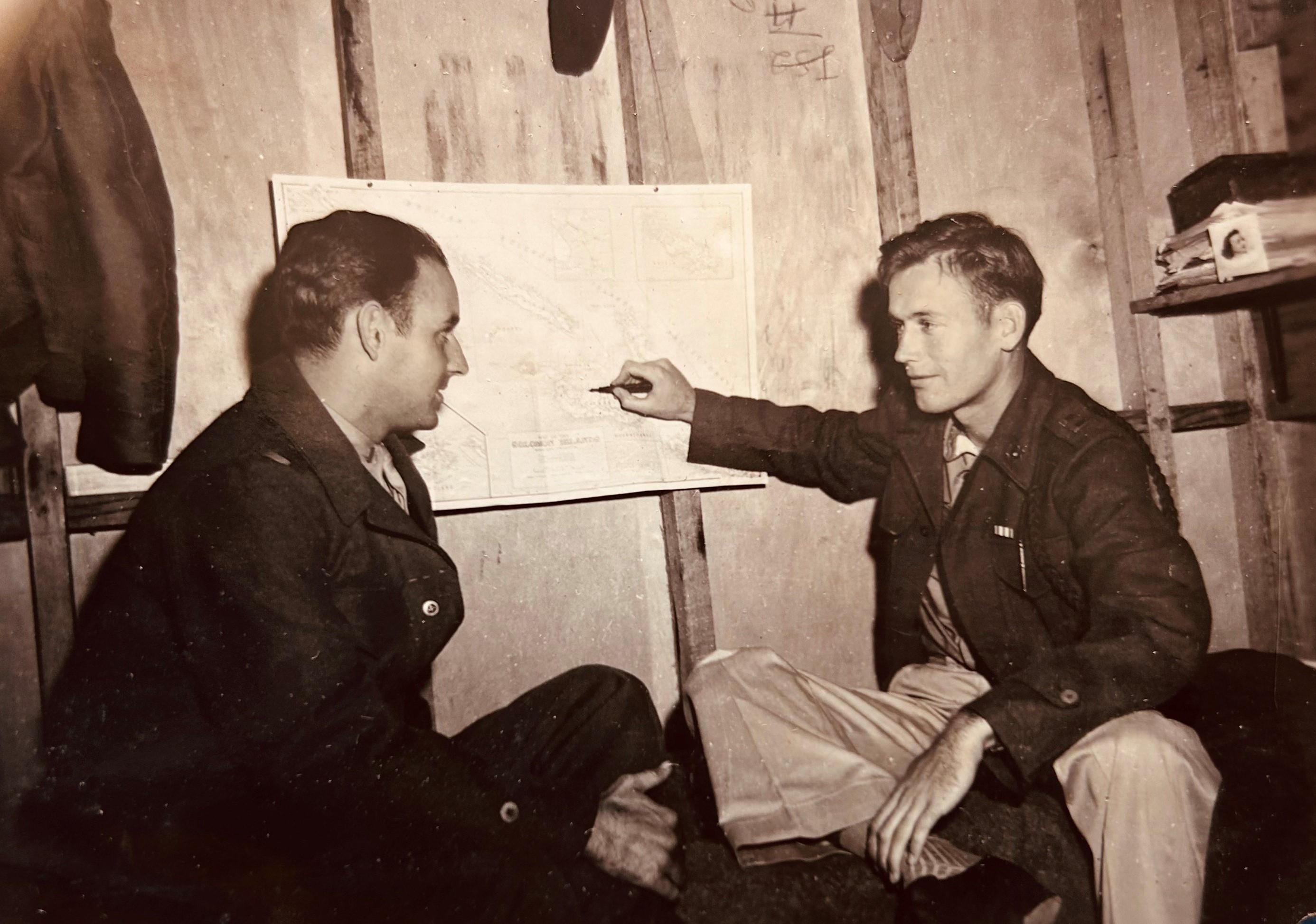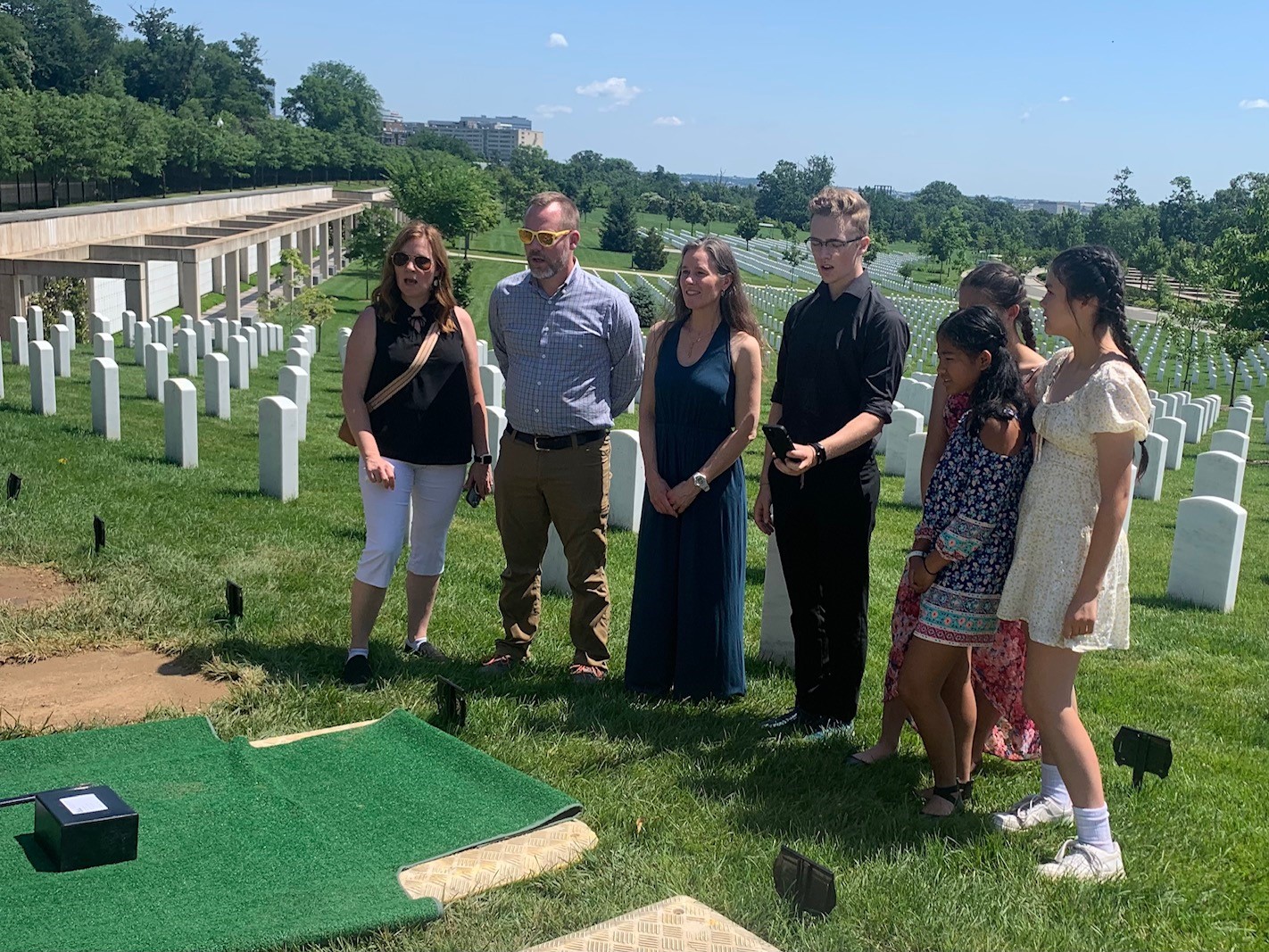
On Aug. 7, 1942, U.S. Marine Corps Capt. Robert H. Dillard (pictured, above right) splashed ashore at Guadalcanal with Weapons Company, Fifth Marines, part of the initial Allied assault force . He made his way inland and, on the second day of the campaign, reached the Japanese airfield where an enemy flag flapped in the breeze. “It was hauled down and the stars and stripes were run up,” Dillard wrote years later. “The flag we put up was only about a foot long, but it sure looked good.”
The island of Guadalcanal marked the first Allied offensive against Imperial Japan in the Pacific, coming nine months after the Japanese attack on Pearl Harbor. The battle for the island would last for six months before the Marines and Army troops declared it secure.
Three months following the initial landing, Dillard took command of a gun section near the Matanikau River after the section’s leaders were either killed or wounded. He pushed the guns forward with the assaulting company and swept the Japanese with fire, forcing them back while the company advanced. The Silver Star he earned for his actions reads: “Although the area was being swept by enemy machine gun and mortar fire during the entire operation, Captain Dillard carried out his duties with greatest efficiency and display of force and leadership with total disregard for his personal safety.”
Once the Americans secured Guadalcanal, Dillard’s regiment landed at Cape Gloucester on the island of New Britain, off New Guinea, on Dec. 16, 1943, to drive the Japanese out. Dillard, now a major, would often venture out ahead of his troops and come under fire. According to one report, while he reconnoitered ahead of his men with another officer, a Japanese bullet tore his jacket. “A little patch of skin had been seared off by the passing bullet,” the report read. “That’s how close they were to death.”
The gunners under Dillard’s command had better protection than the ones on Guadalcanal, thanks to Dillard’s recommendations for gun shields. After the campaign, Dillard returned to the United States, where he served as an instructor at Camp Lejeune, North Carolina. He completed his service in the Corps as a lieutenant colonel.
“He was a true military hero who served with distinction alongside fellow Marines who defended our nation with unwavering courage,” Dillard’s daughter Susan Dillard told a gathering of his extended family at Arlington National Cemetery on June 20, 2025. “I’m profoundly proud and grateful for Robert Hiram Dillard’s service and sacrifice.”
Susan and her brothers, Robert and Don Dillard, along with their families, had come to the cemetery to say their last goodbyes. Robert carried his father’s urn to Section 83, where he laid it in front of a grave marker. He gave a brief history of his father’s life, followed by Susan, who reminded everyone that her father was a hero. Several of Dillard’s grandchildren and great-grandchildren sang “Amazing Grace” to conclude the brief service.
Afterward, Dillard’s three children reminisced about their father and the few times he spoke about the war. Don recalled his father telling him about a Japanese submarine that shelled his camp on Guadalcanal. “One shell hit directly in his tent and killed everyone but him,” said Don. “We are very lucky to be here.”
Don also said his father surprised him when Don started taking flying lessons. “He told me, ‘I used to fly a Cessna at Guadalcanal and do reconnaissance.’” Don had no idea his father knew how to fly an aircraft, much less fly one over an enemy-occupied jungle.
Susan recalled bringing the flags her father had kept from the island to school for show-and-tell. “I always felt like that was in recognition of the role he played on Guadalcanal,” she said.
Robert explained that he had initially planned to bury his father with his second wife at a small local cemetery until he found his father’s war records, citations and unit histories. “My father deserved being buried at Arlington,” he said. “I was just so impressed with his record and what he had done.”
